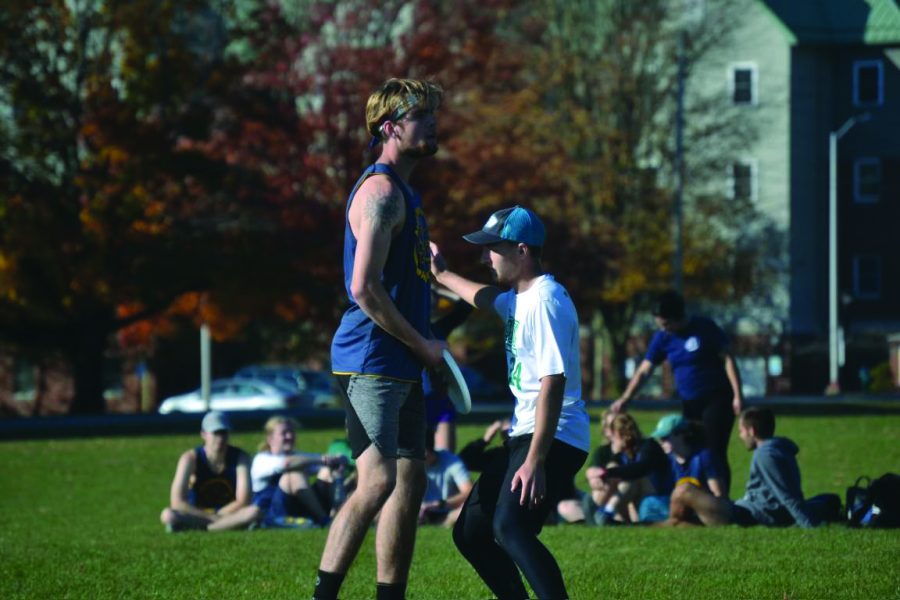First I feel upset, then angry, but eventually I understand.
Dave, after two years in our fraternity, is deactivating.
He’s one of my best friends in the organization; it’s a huge loss.
I stand now on the verge of tears.
He says that he’s not passionate about the organization anymore. He has thought long and hard about the decision and finally settled on this conclusion.
I poke and prod him, trying to persuade him to reconsider. Initially I feel a little betrayed.
Dave was probably my closest friend when I first entered the organization.
When we were initiated and became brothers of this fraternity, we all committed ourselves to a three–year program of pushing the Boulder.
Surpassing the feeling of betrayal is that of anger. I want to say to him, all of a sudden you decided you were tired of pushing and wanted to stop?
I feel he’s being selfish.
But once I get over this notion, tinged with disappointment as it is, I tell him it’s going to be alright. He has to do what he has to do.
I tell him that though technically he has given up his position in the fraternity, I’ll always think of him as my brother, no matter if we’re linked with Greek letters or not. I tell him he’s my friend before my brother.
And that’s true: the bonds created from Greek life will last a lifetime, even after we pass from college.
Maybe while we’re at Allegheny our friendship is consumed by the principles of Greek Life, but the hard work, friendship and teamwork which we harness from pushing the Boulder transcends far beyond our organization.
My parents sometimes become frustrated because they feel that my group of friends is fairly homogeneous, as they are, mostly, my fraternity brothers.
To a certain extent, that’s true. My friends, at least the males, are almost all affiliated with the fraternity.
But that doesn’t have to be a bad thing. Our friendship does not exist singularly within the organization.
The fraternity is a forum for honing our friendship and for building strong relationships.
If someone decides to leave, as Dave did, it doesn’t mean that we will never be friends again. It just means we won’t be brothers.
Friendships created in Greek Life last longer than our time in the organization. Experiences shared are remembered for a lifetime.
Yes, I have many friendships which spawned from my fraternity, but doesn’t that strengthen our friendship?
Being in the same organization and teaming up on as large a scale as pushing the Boulder enhances relationships by providing a common mission.
The power of teamwork makes friendships stronger.
Sure, Dave may leave, and that’s rough for everyone involved, but he was here pushing for two years.
Maybe he’s not into it anymore –– that’s fine. But the friendship that we built from the progress over those years creates an eternal bond.
So it’s appropriate to differentiate between being a brother and being a friend.
In the fraternity, you function as part of a cohesive whole, working towards a common goal while being unified with your brothers.
But at the base of those fraternal bonds are the same principles of friendship.
Being a brother is just taking that friendship and putting it into a specific context.
In this example, that context is Greek life.
Here friendships are manifested in brotherhood, but there are no precise rules which differentiate between the two entities. Brotherhood and friendship are very similar.
When Dave makes his decision final, he will forfeit the status of brother. But the principles which we shared as brothers translate easily into friendship. Needless to say, I’m not worried that the relationship transition will be very difficult.
At the bottom of it all, you can’t be a brother without being a friend.








